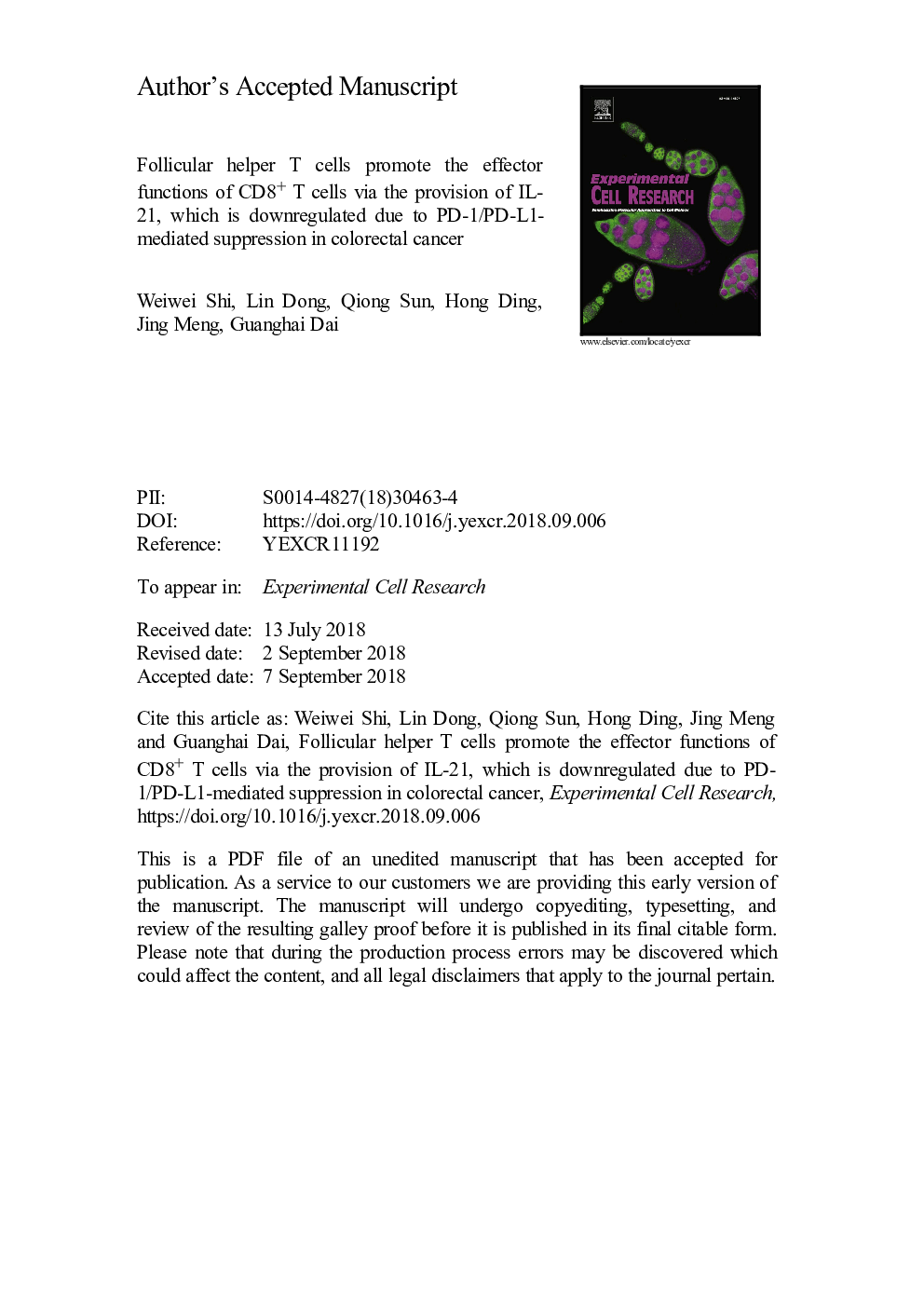| Article ID | Journal | Published Year | Pages | File Type |
|---|---|---|---|---|
| 11019525 | Experimental Cell Research | 2018 | 25 Pages |
Abstract
Recent studies have demonstrated that higher expression of follicular helper T cell (Tfh)-associated genes is associated with better prognosis in breast cancer and colorectal cancer (CRC), but the underlying mechanisms remain unclear. In this study, we compared the function of Tfh cells in non-cancer (NC) controls and in CRC patients between stages II and IV. Data showed that the level of CD4+CXCR5+ Tfh cells were significantly upregulated in stage II CRC patients but was progressively reduced in stage III and stage IV patients. The frequency of PD-1+ cells in CD4+CXCR5+ Tfh cells, on the other hand, was progressively increased from NC patients to CRC patients with increasing severity. Interestingly, the CD4+CXCR5+PD-1- Tfh cells, but not the CD4+CXCR5+PD-1+ Tfh cells, promoted the CD107a expression and IFN-γ expression by CD8+ T cells. This CD8+ T cell-promoting capacity was dependent on the expression of IL-21, as this capacity was significantly impaired by IL-21 neutralization. Tfh cells from CRC patients with advanced stages presented gradual reduction in the capacity to stimulate CD8+ T cells and the capacity to produce IL-21. In addition, treatment with autologous PD-L1-expressing tumor cells further suppressed the IL-21 expression by PD-1+ Tfh cells. Together, these data demonstrated that Tfh cells potently enhanced the effector functions of CD8+ T cells in an IL-21-dependent pathway; however, this role of Tfh cells was limited in CRC patients due to PD-1/PD-L1-mediated suppression.
Related Topics
Life Sciences
Biochemistry, Genetics and Molecular Biology
Cancer Research
Authors
Weiwei Shi, Lin Dong, Qiong Sun, Hong Ding, Jing Meng, Guanghai Dai,
